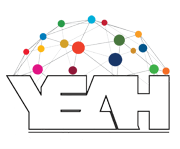
Subscribe to RSS Feed (Opens in New Window)
| 2021 | ||
|---|---|---|
| Wednesday, April 21st | ||
| 1:05 PM |
Session 1C Educating Benin: A Path to Sustainable Agriculture Tess Scarborough, Colorado State University 1:05 PM - 1:01 PM Benin is dependent on subsistence agriculture and is vulnerable to effects of climate change, including higher temperatures and extreme weather events. Droughts, floods, and changing precipitation patterns alter the way agriculture processes occur. The themes of conservation, sustainability, and equity are important as Benin prepares for these effects. By implementing sustainable practices, Benin may continue to feed their people and retain access to clean drinking water, addressing the UN Sustainable Development Goals of Zero Hunger and Clean Water. Sustainability requires structural changes to the economy, including steps promoting equity and addressing individual and community rights to property, resources, and education. |
|
| 1:15 PM |
Emily Jenkins, Colorado State University 1:15 PM - 1:24 PM The purpose of this presentation will be to focus on the Philippines' ecological indicator species the Great Hammerhead Shark, which is currently at risk of extinction due to pressures faced from anthropogenic activities and climate change. We will be discussing the connections this species has across multiple sustainable development goals (SDGs) that affect the Philippines. These SDGs include life below water, economic growth, and good health and wellbeing. Through this analysis we will identify key factors that play an important role in maintaining the health of this species as well as the sustainable future of the country. |
|
| 1:25 PM |
Session 1C Climate Change's Effect on the Bulgarian Emerald Kristin Steffen, Colorado State University 1:25 PM - 1:34 PM The Republic of Bulgaria is a Southeast European country that was previously a Soviet Union territory until 1990. This meant that they had inherited a largely fossil fuel dependent infrastructure. Bulgaria now faces environmental issues such as water pollution, environmental degradation and pollution related diseases. We explore the case of the Bulgarian Emerald, a vulnerable dragonfly species that is affected by water pollution and habitat loss. Targeted actions recommended by Sustainable development goals (SDGs) 3,6, and 9 will help Bulgaria address these environmental issues. |
|
| 1:35 PM |
Session 1C Education for Sustainable Development: International experience Erik Arutyunyan, Peking University 1:35 PM - 1:44 PM International society is recognizing education for sustainable development as an integral part of quality education and a key factor for sustainable development itself. Sustainable Development cannot be achieved only with the assistance of technologies, political regulations and financial mechanisms. ESD is education that enables the social transformations needed to create more equitable societies and achieve sustainable development. This work is dedicated to the experience of ESD implementation all around the world, including inclusive education based on gender, region, nationality, religion and age. The newest cases and approaches in ecological, social and economic frameworks will be presented and discussed. |
|

